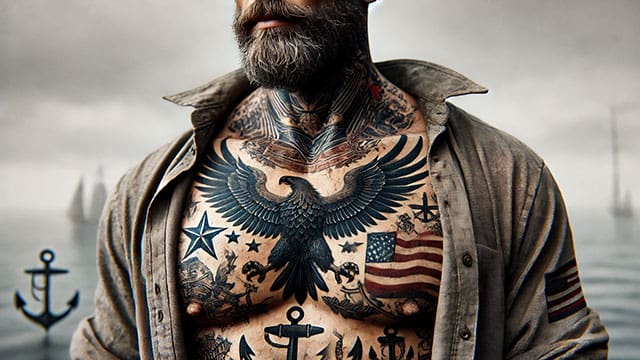Under the pressure of the Second World War, a young officer faces down a defiant crewman
The following is a heartfelt tribute by Allan Bonner to the brave men and women who have served in defence of our freedoms. Written to commemorate Remembrance Day, Bonner’s stories capture moments of courage, sacrifice, and humanity amid the hardships of war. Through these historical snapshots, he honours the legacy of those who fought for peace and the values we cherish, ensuring their contributions will never be forgotten.

For interview requests, click here
Bullies are usually cowards, Harold counselled me when I was a boy. When he was not much more than a boy, he was a fourth engineer on an Imperial Oil tanker carrying aviation gas from East Coast ports to Goose Bay, Labrador.
It was 1944. He was proud of his rank and that he could stand watch without incident. Within a month or two, he’d become a seasoned sailor and survived some very foul weather, including running the ice fields of the Labrador Current.
(About 50 years later, Allan worked with Hibernia and their concern about icebergs hitting their oil platform – but that’s another story).
 |
| Recommended |
| War and ashore: A family’s legacy from the Second World War
|
| Canadians fighting behind enemy lines
|
| Why the right to wear a poppy at work needs to be protected
|
Although he was a teenager, Harold expected to find everything in order on his watch. He usually did or those responsible heard from him. He became known as a no-nonsense officer who didn’t win popularity contests.
The ship pitched, rolled, and corkscrewed into the seas. She was not a comfortable ship. Several of the crew left at the end of each voyage.
One time, in Halifax, a new oiler signed on. He’d been cashiered out of the Navy and done time in the Navel Prison on McNab’s Island in Halifax Harbour. Harold heard other officers discussing the new man and the Chief saying, “Give him to old Harold.” The youngest officer on board earned the title “old” by his performance.
The new man, Maloney, came on his first watch when an open shirt displaying a tattoo stretching from shoulder to shoulder – an American Eagle. He had 23 tattoos. On his right hand, one star for every month spent in the brig. The back of his hand was entirely blue. Maloney carried an eight-inch sheath knife on his belt.
The knife had to go right away. “Have you ever sailed on deck?” Harold asked. Maloney had. Harold pointed out they were in an engine room now, and the knife was not a necessary tool. The exchange took place eye to eye because the noise of the engine room required close contact and high-volume voices. Maloney protested that he’d always worn a knife. He defiantly said he could see no reason to stop now. “I’m the reason,” Harold said. “I won’t allow a knife on my watch.”
Maloney stared at Harold with an unmistakable “Screw you” look. Harold’s eyes transmitted “Or else” as he stuck out his hand to receive the knife. The bully’s eyes flickered, went soft, and then he handed over the knife.
Mid-watch, Harold asked Malaoney to go the galley and bring down a sandwich and cup of Kai (hot chocolate) – customary practice. Harold wasn’t really hungry but wanted to press his advantage and provide a final gesture to show Maloney who was in charge.
At the end of the voyage, Maloney was arrested on shore and never returned to the ship. But while on the ship and on Harold’s watch, he behaved himself. Harold figured the man just needed someone to let him know who was in charge.
Allan Bonner was the first North American to be awarded an MSc in Risk, Crisis, and Disaster Management. He trained in England and has worked in the field on five continents for 35 years. His latest book is Emergency! – a monograph with 13 other authors on the many crises that occurred during the pandemic.
Explore more on Remembrance Day, First World War, Second World War
The opinions expressed by our columnists and contributors are theirs alone and do not inherently or expressly reflect the views of our publication.
Troy Media
Troy Media is an editorial content provider to media outlets and its own hosted community news outlets across Canada.
